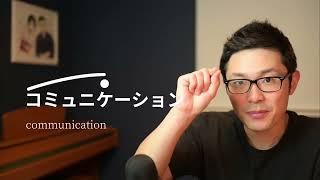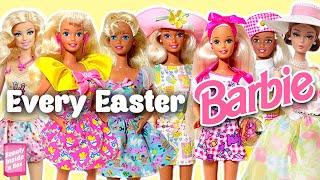
Japanese Pronunciation: Pitch Accent Basics
Комментарии:

love ♡
Ответить
THE SNOW DOGGY IS SO CUTE!!!
Ответить
ビデオをありがとうございました!
Ответить
OMG!!! this video is great!!! as a spanish native speaker this was really hard for me to understand, I just learned it by practice and habit when I lived in Japan. It was specially hard for me to understand when japanese people tried to explain it to me because there is "accents" in spanish that is kind of a similar concept but different at the same time so I couldn't understand the actual difference till today!!! Thank you so much!
Ответить
How to know where the stressed mora is by just reading the word?
Ответить
How to know where to put the high or low pitch. How to determine or how to locate the pitch
Ответить
Interesting. In French the pitch is within the sentence structure, not individual words, as it is in English and Japanese.
Ответить
Interesting. My dictionary lists 韓国 as 平板型. Is 頭高型 also acceptable? Or is my dictionary wrong?
Ответить
Wow! This has been so helpful!!! I never realized this before.
Ответить
Like sing learning 😂
Ответить
Very straightforward. Thank you.
Ответить
Waiting for next video about accent xD
Ответить
Where has this been all my life! Looking forward to the next pitch accent video. So helpful <3
Ответить
This may seem like a nutty question, but I’m mostly just curious: do you think an older rural native Japanese speaker — who maybe didn’t study English in school — would be familiar, or unfamiliar, with the origins of katakana loan-words borrowed from English?
In other words, I guess what I’m asking is: if I were deep in the countryside, and I pronounced ハンバーガー as “hamburger” instead — or, to give a trickier example, if I said “hard disk” instead of ハードディスク — might the Japanese speaker think “Oh, okay, I recognize that word, this U.S. dude is just using its original pronunciation,” or is it likelier they’d think “Who is this clown butchering my beautiful Japanese?” or possibly even “Huh? What’s that word he said?”
I ask because my instinct, when encountering a word typically written in katakana and borrowed either from English or from my other native tongue Spanish — such as パン — is to just say the words as they’re pronounced in my native languages. I suppose what I picture is being in Tokyo, talking to a cosmopolitan Japanese person around my age or younger, maybe a shop clerk, and saying in halting Japanese that I’m looking for a ドレス for my girlfriend, or a ネクタイ for myself, or a スカート for a friend, and them thinking “Oh, who is this try-hard, why doesn’t he just say the words in English?” or worse yet, them thinking “Is this guy trying to speak correctly, or is he just making fun of our Japanese accents?”
But on the other hand, maybe these loan-words are now so ingrained into Japanese language and culture that to pronounce them in their original tongue would be to obscure them, and to render them unintelligible? Especially to a listener who only spoke Japanese. I mean, the words are written in katakana, so that’s an open acknowledgment that they’re borrowed … but talking to people in the U.S., our magpie of a mother-tongue steals words from other languages all the time, and I guarantee you most folk here spend 0% of their time thinking about the origins of “hoosegow,” slang for jail, from the Spanish juzgó. Maybe that’s how it is around the world.
Anyhow. Sorry, I know that’s a niche question. In short: what would be the consequences of a U.S. tourist to Japan, speaking Japanese, pronouncing words borrowed from English as they were originally pronounced … and conversely, what might be the consequences of that person trying very hard to pronounce those words just as they are spoken in Japanese?
Thank you for your uploads, they are very enlightening!!

Does pitch accent differ by region? I have previously asked my Japanese professor about it, and he said not to worry about it because it varied by region and that I would pick it up if I spent time in Japan.
Ответить
is the dog in Kaboki ?
Ответить
can you make a video about when to use wa particle vs when to use ga particle?
like for example when I say someone is doing something, is it お母さんが買い物する。Or do I use ば?

These titles are so incredibly clever. I click on them every time thinking you’re going to speak the words in the title in the video and always get mislead but end up watching anyway.
Ответить
Japanese pitch accent is a funny thing to me because I didn't consciously recognize it, nor was I ever told about it, during my entire Japanese language bachelor's courses. Looking back, when I studied abroad and such, I was always told I had the best pronunciation, and I think it's because I was imitating the pitch to some degree without realizing what I was doing. Back then I probably would have said getting the phenomes correct was the ticket, but I know now that pacing and pitch does way more to create an impression of good pronunciation.
Ответить
Arigato Go Zai Mas, Nihhon Kokku!❤🇯🇵
Ответить
Wait, isn't 弟 中高 pattern? お^とうvと? That's what I always heard, both google and Jisho seems to agree, haha.
Ответить
We have this in arabic, especially when reading quran, but it is more dependent on the situation or events like happiness , advice , etc... but here it seems fixed somehow , Try to hear some quran by Al Afasi, and you will get the point 😁
Ответить
God damn...
Ответить
This is hard for me as a Finn. In Finnish the stress is always on the first syllable of every word.
Ответить
It would be really great to see a video in this same style for pronouncing different words that are spelled in the same romaji i.e. uncle (oji) versus grandfather (ojii). This video was very helpful, thank you. ありがとうございます
Ответить
Subscribed! You have a very nice teaching style! Looking forward to more videos! :)
Ответить
That was well explained. Now, I guess I’ll have to learn by exposure which word has which pitch accent for the rest of the Japanese vocabulary… sigh. (And the complications of how it applies in sentences, too… double sigh.) 😅
Ответить
Your videos are amazing. I decided to learn hiragana and katakana a couple years ago and this is really helping me put that to use! Thank you!
Ответить
ありがとうございます😍
Ответить
Great video! I'm a big fan of your channel. Is there any online dictionary or tool you recommend to know the pitch accent of each word?
Ответить
👏🏻👏🏻👏🏻
Ответить
Interesting learning Japanese is like going up and down on chair
Ответить
Your videos are the most helpful I’ve ever encountered
ありがとうございます❤

Stress accent and pitch accent are completely different. Japanese words don't have "stressed" moras, they have high pitch and low pitch. Stress implies greater volume, elongation, AND pitch. Japanese pitch accent is JUST pitch. Its misleading to call it stress. They're downsteps.
There are also other things in this video that are misleading. Japanese pitch accent doesn't rise over several moras, it goes from high to low or low to high in 1 mora. In your own example of コミュニケーション, you even pronounced it in a different way then how you showed it visually. The downstep IS on the ケ like you pointed out, but it happens instantly, not over theション. I assume you are a native speaker, and if you listen to your own voice you can clearly hear that you are adding the downstep instantly and not over the ション.
(There is a slight reduction in pitch over time in sentence level pitch accent called terracing, but that's not really useful to teach or learn because it happens naturally usually.)
Its very hard to hear and work out the rules of our own languages, you should check out Dogen's pitch accent lessons if you want to learn how pitch accent works.

Thank you! ... I think I want to speak pitch accents correctly,... but, somehow, I want to pronounce incorrectly so I have that ' I have the cool foreigner accent ' style (^-^)
Ответить
Thank you very much for making this video, very helpfull.
I am glad I found your channel.You teach Japanese in the way that I cannot find from any book.
どもありがとうございます。

OMG this is really helpful!! Thnkyouuu
Ответить
Extremely high quality Japanese learning content AND A CORGI! Subscribed!
Ответить
With the anata examples it was clearer, but raising and falling pitch sounds a bit ambiguous imo. But basically you mean that it is low pitched until you reach the high pitch mora, and then low pitched until the end.
Usually I see people explaining this mora by mora あなた = LHL (low high low pattern), but the raising falling explanation feels a bit more visual.

He looks so cute on the thumbnail 🥰🥰
Ответить
How do we know what’s the position pitch accent of word
Ответить
They told me in my 2 Japanese classes that this wasn’t a thing. That there was no pitch or accent. Blatant lie apparently. I don’t actually remember how to speak any Japanese…
Ответить
speaking about accents, please check how you make accent in "adjective", it's really distracting when you pronounce it as "objective" 😆 great videos though, thank you and good luck!
Ответить
I like your video very much, I look forward to see the video talking about how the stress accent shifts😊
Ответить
どれも素晴らしいビデオですが、標準語アクセントでないところが気になりました。
Ответить
Oh man I was instantly able to recognize the Jiraiya sound at the end there 😂
Ответить
As a vocalist myself, it's good to see Kaname using his vocals for explaining the nuances.
Ответить
Great video.
I notice you call the pitch accented morae "stressed", but the term can be confusing to speakers of many languages, especially the Germanic ones like English, where a stressed syllable by definition is louder, stronger, higher pitched, but crucially it is also significantly longer than an unstressed syllable. In addition, the natural rhythm of the languages is one where the time from one stressed syllable to the next gravitates to being of equal length, regardless of whether there is two, one, or no unstressed syllables between the stressed ones.
If you tell an English speaker the stress of for instance あなた is on な, they are very likely to then pronounce it あなあた for a while because that is how it has to be pronounced based on their understanding of what word stress means.
It is actually a little difficult for a native English speaker (or a Norwegian like myself) to properly pronounce a long unstressed vowel next to a stressed short vowel, like the name of Czech composer Janáček, for instance, which is correctly pronounced with a short "a" on a stressed vowel followed by a long "a" on an unstressed one. It just doesn't feel natural.
Or "Tolkien", whose name is also supposed to have the stress on the first short syllable, but is often pronounced with the stress moved to the longer second one because it just feels more natural to an English speaker. This also has the effect that many who put the stress in the right place mistakenly pronounce his name as three syllables so that the second and third syllables can be short.




![[AMV] Kuran kaname - Hypnotic [AMV] Kuran kaname - Hypnotic](https://ruvideo.cc/img/upload/bzBHaDFVd1UybUo.jpg)



![DEEP TRIBE - PROTON RADIO MIX [VISUALS by 214PRODUCTIONS] DEEP TRIBE - PROTON RADIO MIX [VISUALS by 214PRODUCTIONS]](https://ruvideo.cc/img/upload/RWJHdV9la1JudEM.jpg)


















